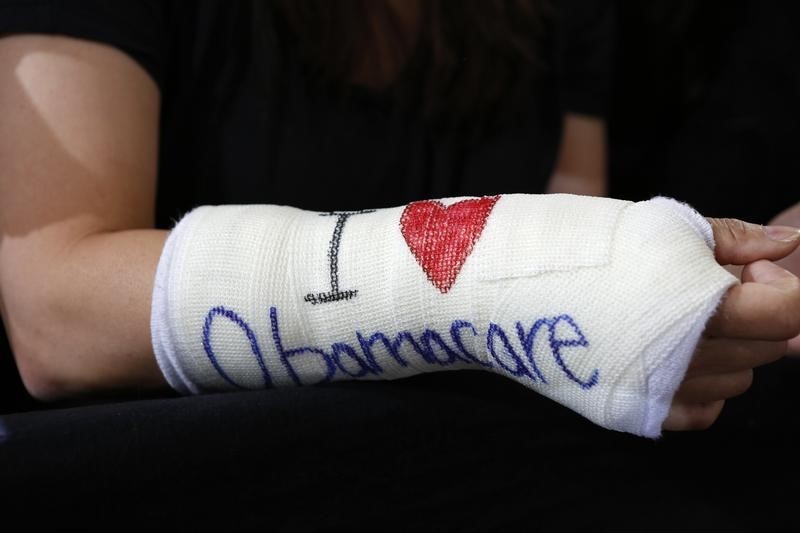By Richard Cowan
WASHINGTON(Reuters) - War rooms of lawmakers and their aides in the U.S. Congress are working furiously to try to influence the Supreme Court's nine justices who will hear arguments on Wednesday on the future of President Barack Obama's landmark healthcare law.
These informal working groups, staffed by Republican and Democratic members of Congress, have gone into high gear in recent days.
They plan to use an array of tools - from social media and radio interviews to newspaper opinion pieces, news conferences and Senate and House of Representatives floor speeches - to bolster the opposing legal arguments being laid out before the high court and to rally public opinion.
On Twitter, for example, at #acaworks, Senate Democrats brim with upbeat assessments of how Obamacare has slashed the numbers of uninsured while also saving on seniors' drug costs.
One tweet features an Obama quote: "While affordable health care might still be a threat to freedom on Fox News ... it's working pretty well in the real world."
Senator John Barrasso of Wyoming, a member of the Republican leadership, is spearheading his party's efforts in the Senate to land a deadly blow to the Affordable Care Act if the Supreme Court rules the administration went too far implementing the 2010 law.
For Republicans, that means assuring the Supreme Court that if it rules against the administration, Congress will step in and help, at least temporarily, the 7.5 million people in 34 states who stand to lose healthcare benefits.
Democrats are teeing up the opposite message as they help the White House defend Obamacare, which is opposed by 53.5 percent of Americans, according to a recent Reuters/Ipsos poll.
"We will continue to remind the Supreme Court there are no contingency plans and millions of people are going to suffer immensely if this decision favors the plaintiffs," said a senior Senate Democratic aide.
Senator Chris Murphy of Connecticut, Barrasso's Democratic counterpart in the battle, held a news conference on Tuesday in which he showcased a constituent who is enrolled in the federal healthcare program and suffers from hemophilia.
"Devin," Murphy said, likely would not be able to cover the cost of his $4,000 daily injections to fight the disease.

Between now and this summer's Court decision, Democratic war rooms and the White House will tout any new data that underscores the effectiveness of Obamacare, aides said, while arguing that often-deadlocked Republicans will never agree on an alternative to Obamacare.